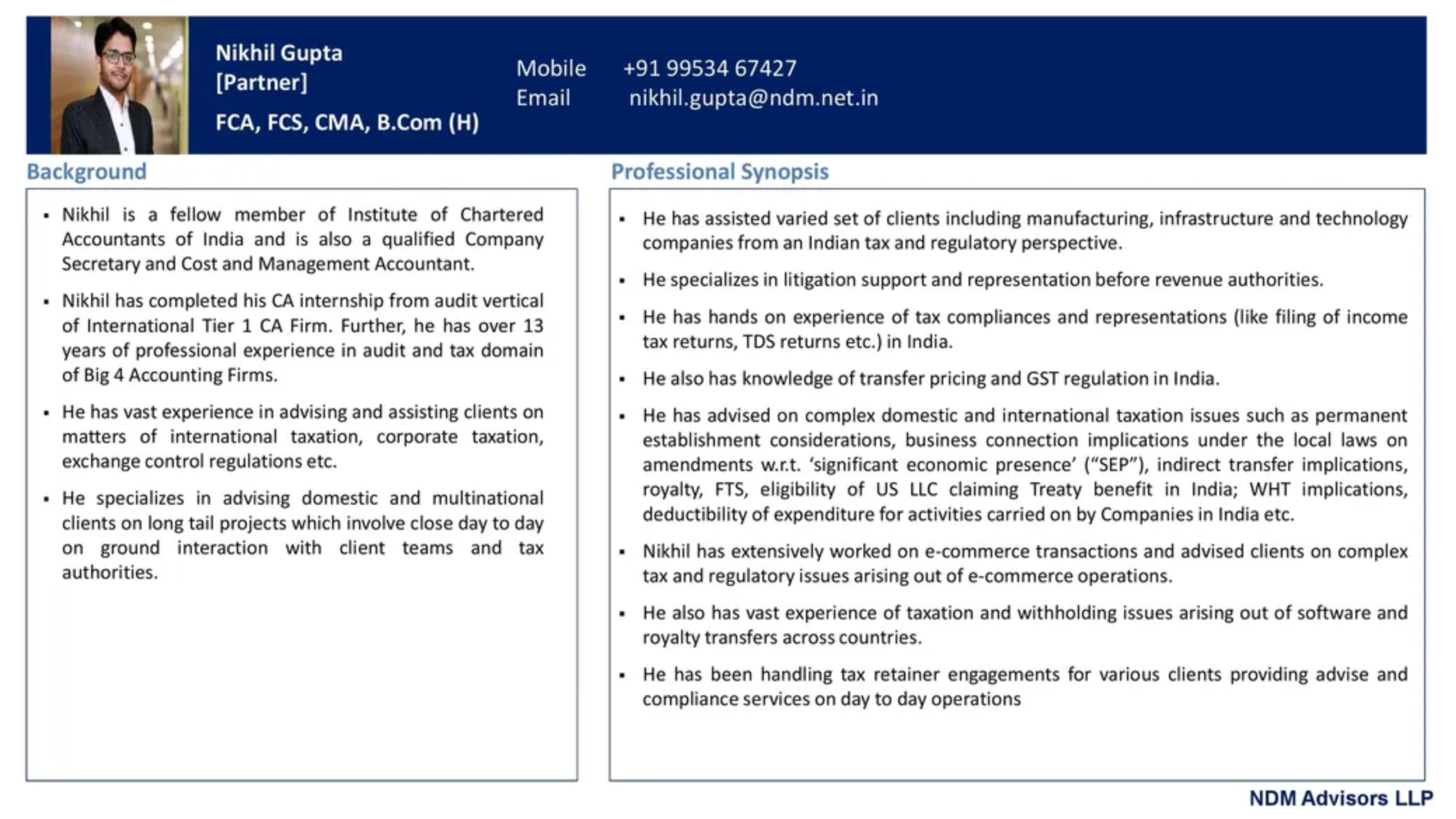To claim ITC, keep the ‘tax chain’ going- Affirms High Court of Orissa

In this article, we dwell upon the decision of High Court of Orissa in the case of Safari Retreats Pvt Ltd and Ors Vs. Chief Commissioner of CGST and Ors [WP(C) No. 20463 of 2018]. As per the author, the decision of High Court is a welcome one as the same would enable construction companies to claim ITC where the same intended to be let out. The author also opines that the decision calls for realignment of the ITC matrix and evaluation of ‘tax chain’ criteria for the companies.
The fundamental concept of Goods and Service Tax (‘GST’) regime in India is that it is a comprehensive multistage, destination based tax. The very basic necessity of GST being a destination based tax is that it has to be collected from the point of consumption and not point of origin like previous taxes. As a corollary, what emanates is that GST would be payable on the input services/goods and credit of the same claimable at the time of onwards sale. However, the same is not claimable at the point of ultimate consumption. Accordingly, credit of input GST is claimable as long as the ‘tax chain’ keeps on moving and the moment the tax chain stops, credit of GST is lost.
Provisions pertaining to the Input Tax Credit (‘ITC’) of GST revolve round the aforesaid principles and are contained under Chapter V of the Central Goods and Service Tax Act, 2017 (‘CGST Act’). Section 17(5)(d) of the CGST Act restricts ITC of input goods/services used for construction of immovable property (except for plant and machinery). Relevant provisions of Section 17(5)(d) are as follows:
“(5) Notwithstanding anything contained in sub-section (1) of section 16 and sub-section (1) of section 18, input tax credit shall not be available in respect of the following, namely:
…
(d) goods or services or both received by a taxable person for construction of an immovable property (other than plant and machinery) on his own account including when such goods or services or both are used in the course or furtherance of business.”

From the reading of above provisions, it is clear that the ITC on input goods/ services would not be available in case the same is used for construction of immovable property (except plant and machinery) whether the same is used for end consumption or for onward business. Being a destination based tax, where the immovable property is constructed for self-consumption, question of availing ITC does not arise. However, where the constructed property is itself an input for furtherance of business, a question arises that since, the tax chain is not broken, whether ITC should be available on such constructed property which is used for furtherance of business.
Recently, the High Court of Orissa was posed with the challenge to constitutional validity of Section 17(5)(d) of the CGST Act on precisely the issue that ITC should be available on construction of building basis the same being used for further subletting as the tax chain in this case keeps going.

In M/s Safari Retreats Pvt Ltd and Ors Vs. Chief Commissioner of Central Goods and Service Tax and Ors [WP(C) No. 20463 of 2018], the petitioner was in the business of construction of shopping malls for the purpose of letting out to tenants and lessees. It had ITC amounting to INR 34.40 Cr on input materials such as building material, aluminium, wires, paint, lifts, escalators, air-conditioning plant, chillers, DG sets, building automation system and input services such as architect, legal, professional, engineering etc. The petitioner challenged constitutional validity of section 17(5)(d) of the CGST Act insofar as the same does not allow ITC in case of construction of immovable property for letting out.
The Petitioner argued, inter-alia, that in case the constructed property was intended to be let out for rent, then ITC should be allowed as letting out is considered as ‘supply of services’ under the provisions of Schedule II, Para 2(b) of the CGST Act. It was argued by the petitioner that in the instance case, where the construction was intended for letting out of property, the same may be allowed as ‘tax chain’ in the instant case is not broken. Further, petitioner argued that denial of ITC would render the building as uncompetitive and would lead to double taxation, firstly on the inputs consumed and secondly, on the rentals generated by the same building. Also, the appellant placed reliance on the Supreme Court’s decision in the case of Eicher Motors Ltd Vs. Union of India [(1992) 2 SCC 361].
The High Court of Orissa, accepting the arguments of the appellant, held that the very purpose of GST is to make uniform provisions for levy and collection of taxes and prevent multi taxation. Thus, provisions of Section 17(5)(d) of the CGST Act are frustrating the very objecting of the GST law. Placing reliance on the decision of Apex Court in the case of Eicher Motors (supra), the High Court of Orissa allowed the credit of GST paid on input goods/ services to the petitioner in case the building was constructed for the purpose of letting out. However, on the constitutional validity of provisions of Section 17(5)(d), the court denied holding the provisions as ultra-vires.

Conclusion
The decision of the High Court of Orissa is a welcome one. In light of the principles as laid down by the High Court, it imperative that the companies engaged in the construction of the buildings/ complexes etc. for further letting out re-align their ITC matrix to claim full benefit of the ITC and also evaluate whether the ‘tax chain’ criteria on ITC is fulfilled.
In case of queries, drop us a line on communications@ndm.net.in
Have Any Question?
Send us a message and tell us more about your business and financial goals. We will get back to you soon to schedule a consultation.
- +91 9873210394
- Communications@ndm.net.in


















